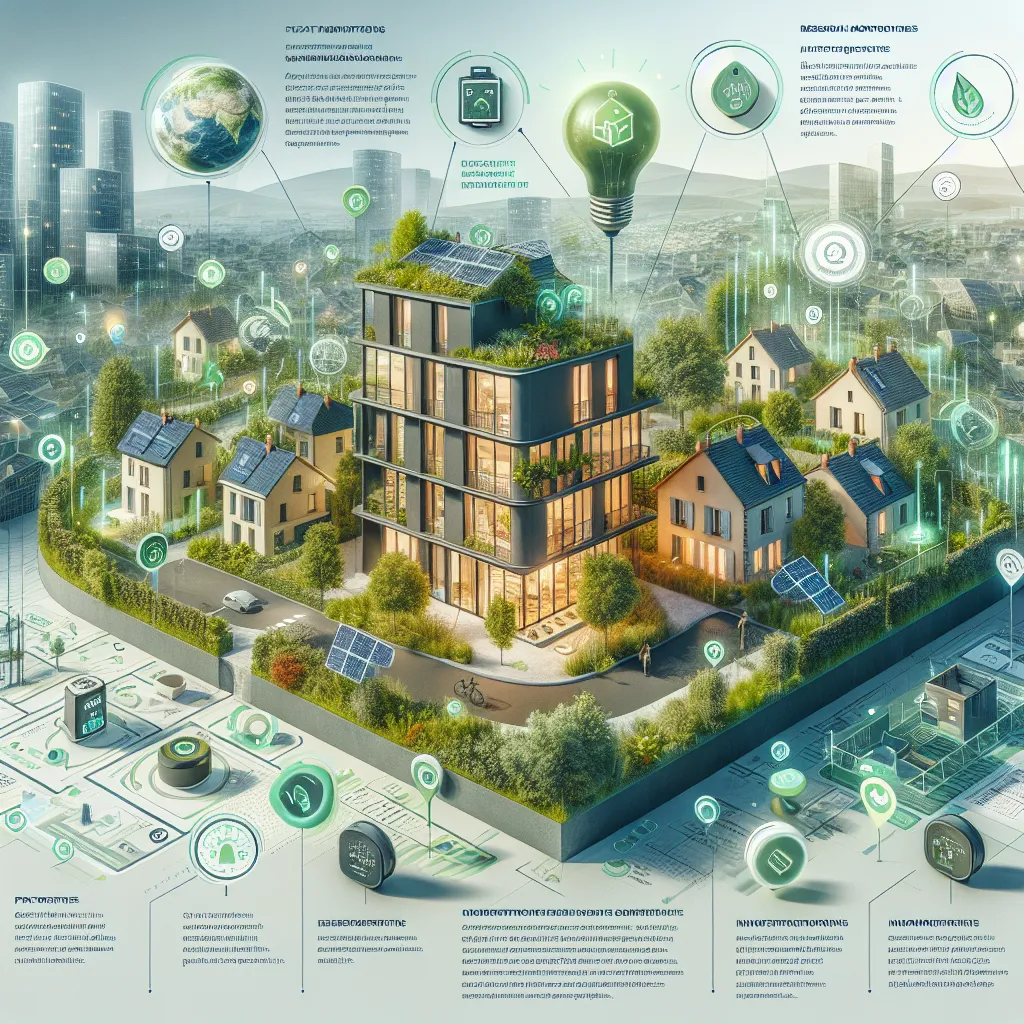Real estate is entering an era of decarbonization

The government has included the real estate sector in an ambitious program to reduce carbon emissions by 2050: by 49% by 2030 and complete decarbonization by 2050. However, buildings account for 23% of France's greenhouse gas emissions. This is a huge challenge for both the 5-7 million energy "holes" and the billion square meters of commercial space, given that this sector consumes 30% of energy.
With these new challenges, Proptech startups, which have spent the last decade trying to simplify transaction and management operations, have contributed extensively to the digitalization of the industry and will continue to do so. Much needs to be done to offer a smoother leasing process or make lease investments affordable,''acquiring mainstream housing, promoting other forms of housing for older and younger professionals, or making the management company's activities more visible. But, if there is a topic that startups in the Proptech sector should particularly keep a grip on, it's decarbonization! Carbon footprint issues are increasingly affecting people's lives and therefore real estate professionals, especially since the issue has become a limitation. To reduce the carbon footprint in real estate, we need to tackle its main causes - construction and energy consumption.
When it comes to energy consumption, even though electricity is the least carbon intensive form of energy in Europe, a 2013 ADEME study showed that gas, fuel oil and''wood still accounts for more than 50% of the energy mix for heating systems, and electrical equipment is mostly individual rather than centralized. In this context, tools to measure and reduce consumption, especially through the Internet of Things (IoT), play a particularly important role in both individual and collective housing. We can go further when talking about energy self-sufficiency, why not produce our own energy with solar panel kits that can be assembled by ourselves, or store the energy produced by the sun or the grid when it is cheap to use it when it becomes more expensive. To be successful, however, energy renovation of the housing stock is necessary, and this project''is huge.
When it comes to new builds, they emit carbon even before the first post is driven, simply because they are mostly built with concrete, which is made from cement, and concrete is known to be a very large source of CO2 emissions when it is produced; 1 ton of concrete is 0.62 tons of CO2 eq. There are alternative solutions, such as low carbon concrete, which has 20-40% lower emissions, but developer Woodeum has already waited no longer and started building with timber construction, and some startups have started producing factory modules with low carbon materials. Bio-resource materials such as straw for insulation or carbon to replace metal are also gaining popularity.
14 May 2025
13 May 2025




Add to that the enormous social challenges of shrinking purchasing power and access to housing, and the list of issues that Proptech must address keeps growing. So the days of video commentators, 3D solutions or yet another new' are over'agencies or real estate portals, an era of influence is coming.
What is a carbon footprint?
The carbon footprint measures the impact of an activity on greenhouse gas emissions due to that activity. In the housing sector, the carbon footprint is the sum of the greenhouse gas emissions required to build and operate the dwelling, i.e. water treatment, waste and energy use required to heat the dwelling. Breaking down the carbon footprint of the real estate sector into its components, it can be seen that it consists mainly of construction and energy consumption, although it is relatively low-carbon in France. It is estimated at 2.4 tons of CO2 per person.
Comment
Popular Posts
Popular Offers

Subscribe to the newsletter from Hatamatata.com!
Subscribe to the newsletter from Hatamatata.com!
I agree to the processing of personal data and confidentiality rules of Hatamatata










